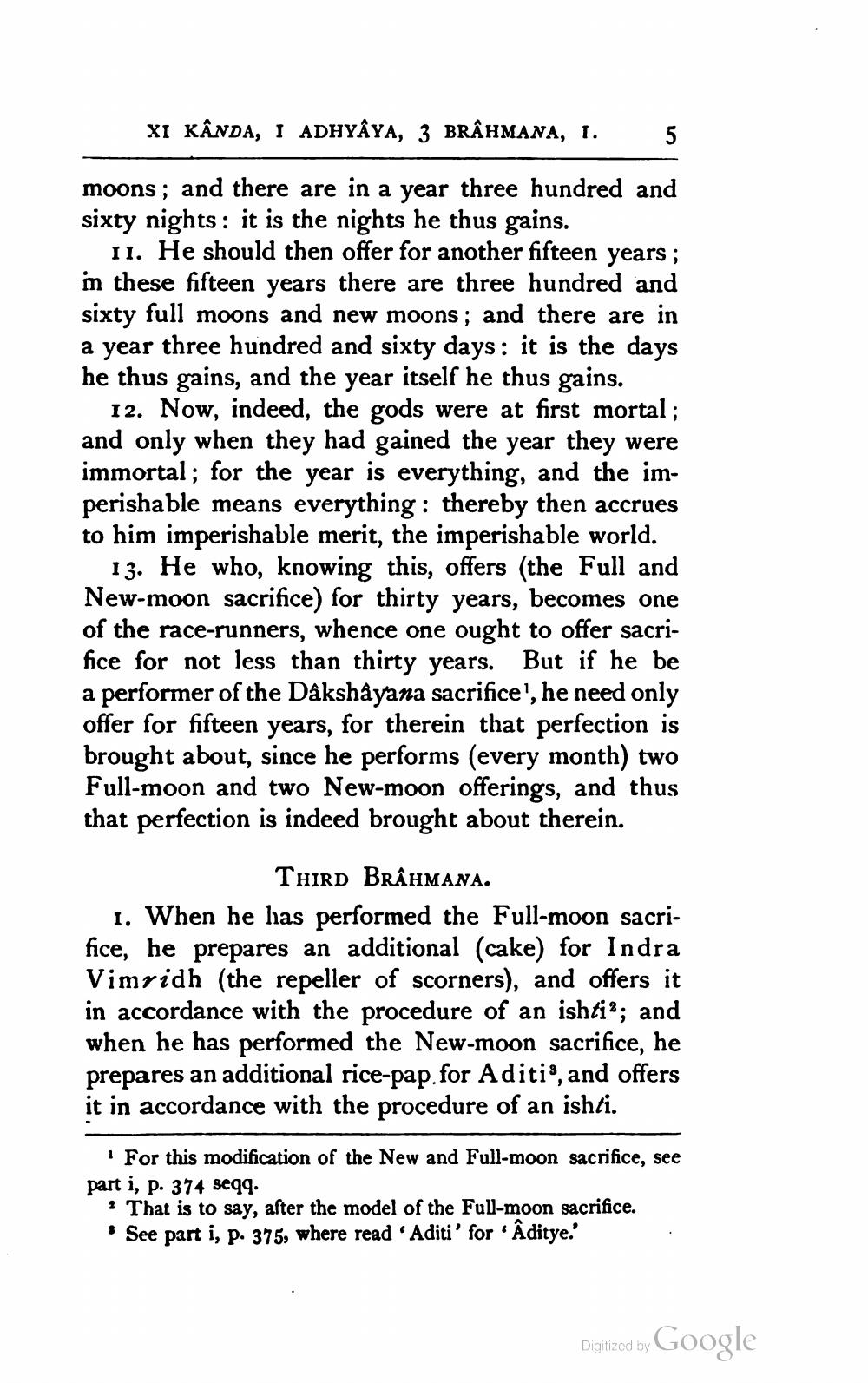________________
XI KÂNDA, I ADHYÂYA, 3 BRÂHMANA, 1. 5
moons; and there are in a year three hundred and sixty nights: it is the nights he thus gains.
11. He should then offer for another fifteen years; in these fifteen years there are three hundred and sixty full moons and new moons; and there are in a year three hundred and sixty days: it is the days he thus gains, and the year itself he thus gains.
12. Now, indeed, the gods were at first mortal; and only when they had gained the year they were immortal; for the year is everything, and the imperishable means everything: thereby then accrues to him imperishable merit, the imperishable world.
13. He who, knowing this, offers (the Full and New-moon sacrifice) for thirty years, becomes one of the race-runners, whence one ought to offer sacrifice for not less than thirty years. But if he be a performer of the Dâkshayana sacrifice', he need only offer for fifteen years, for therein that perfection is brought about, since he performs (every month) two Full-moon and two New-moon offerings, and thus that perfection is indeed brought about therein.
THIRD BRAHMANA.
1. When he has performed the Full-moon sacrifice, he prepares an additional (cake) for Indra Vimridh (the repeller of scorners), and offers it in accordance with the procedure of an ishti2; and when he has performed the New-moon sacrifice, he prepares an additional rice-pap for Aditi3, and offers it in accordance with the procedure of an ishti.
1 For this modification of the New and Full-moon sacrifice, see part i, p. 374 seqq.
That is to say, after the model of the Full-moon sacrifice. * See part i, p. 375, where read Aditi' for 'Âditye.'
Digitized by
Google




